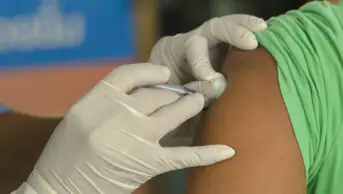
iStock Photo
Whether you are a seasoned interviewer or it is your first time in the seat, trying to find the right candidates for openings in your business — particularly for specialist roles — can be challenging. Whittling down applicants requires an element of skill that goes beyond simply deciding if their CV matches the requirements of the job.
A good place to start is by being clear about what you are looking for, including what is negotiable and what is not. The amount of information you have access to will largely depend on what you gather during the application process, so ensure you allow time to review each candidate’s application and CV before the interviews. This will also give you the opportunity to think about any questions you want to ask and identify any potential gaps in their experience that you want to explore.
How to choose candidates for interview from their CVs and cover letters
1) A cover letter should be a relevant, brief snapshot of skills and experience and not a repetition of the CV;
2) Prioritise candidates who have tailored their CVs to the role they are applying for;
3) Choose candidates who demonstrate their track records with evidence of their achievements;
4) Ensure candidates are entitled and registered to work and have the necessary qualifications;
5) A good cover letter and CV will not contain grammatical errors or spelling mistakes.
A numbers game
Once you have decided what you are looking for, you need to decide how many applicants you are prepared to meet.
“If I have a number of strong candidates, I would look to interview about six people ideally,” says Elen Davies, recruitment manager of New Directions Pharmacy, part of New Directions Recruitment, which searches for locum and permanent pharmacists, dispensers and pharmacy technicians throughout the UK. “This allows you to see a range of individuals who you can then compare, and also provides the opportunity to see candidates that, if not successful for this particular post, may be suitable for future roles within the company,” adds Davies.
At Superdrug, pharmacy resourcing manager Tericia Ellis-Jones narrows it down to no more than three to four candidates per position. “This would provide us with a variety of candidates to benchmark against and ensure that we are selecting the most suitable candidate for the role.”
However, the more specialised the role, the harder it can be to get the level of applications required to identify even three suitable candidates for interview. Additionally, the more people you interview, the more time consuming it can be. Yvonne Tuckley, learning and development manager at Numark, a buying group for community pharmacies, recommends considering initial telephone interviews to screen candidates. “This can sometimes help applicants if they are working in the day or are relocating,” she says. “Telephone interviews also mean you are more likely to focus on what the candidate says rather than their appearance or mannerisms but, in a role that requires them to be customer facing, you will still need to assess their ability to interact face to face.”
What to look for during a telephone interview
Many of the things you would be looking for in a telephone interview would also apply in a face-to-face interview. Specifically, focus on:
1) Evidence that the candidate can do the role he or she is applying for;
2) An ability to build rapport and communicate. Does the person fit the company values?
3) An ability to provide concise answers with sufficient detail;
4) An ability to listen effectively and respond appropriately;
5) Genuine enthusiasm towards pharmacy, the role and your organisation.
Quality questions
The first face-to-face interview is your chance to see if the candidate’s identity on paper matches up with your expectations of the kind of person you envisage in the role, which means planning your questions carefully.
You could start with competency-based questions based on the capabilities relevant to the position in question, and look for evidence that the candidate can demonstrate particular competencies in their previous roles.
“Ask open questions,” says Davies, “ensuring you provide the interviewee with plenty of opportunity and time to think about and answer them effectively. Have a list of buzzwords or keywords that you expect the interviewee to use because this shows understanding of the role and what it requires.”
The interview stage is also a chance to find out if candidates have other qualities that you are looking for. Tuckley advises: “Personality and how the person will fit into the existing team, as well as interact with your customers, will be important.”
Now is also the time to pick up on any queries you have with their CV. “Explore reasons for moving jobs, and any potential demotions, such as a change from management to non-management roles,” says Emma Kirby, resourcing and talent manager at Well pharmacy group. “Find out about their day-to-day responsibilities, any projects they’re involved in, and reasons for any breaks in employment or sabbaticals. And don’t forget to find out what they are accredited for.”
Unusual asks
Tuckley advises not to get carried away asking weird and wonderful questions, such as asking people what sort of animal they would be and why, because this is unnecessary. “There may be some jobs where creativity is required,” she says, “but most pharmacy jobs won’t require you to ask such questions and, unless you have proper training in this area, you won’t have the skills to interpret the answers.”
Creative questions that could still be useful include: ‘What is your biggest personal achievement to date?’. This can demonstrate what the candidate’s values are and what they feel is important to them.
However, Kirby advises a note of caution when asking more unusual questions: “You do need to ensure that you are not unknowingly discriminating. Questions such as, ‘Where do you see yourself in five years’ time?’ could lead you into challenging conversations if the candidate is planning on having a family in the next few years.”
And repeat
Second interviews may be required if you want to ask candidates further questions or if you want them to meet other colleagues who were not present the first time round. In a larger organisation, an individual from HR usually attends the interview as a matter of course. In smaller companies, it may just be the pharmacy manager plus the immediate line manager of the role in question who attend.
A second interview may also be useful if you find yourself in the fortunate position of having two equally adept candidates. Ellis-Jones recommends asking questions to determine if they have a good understanding of the company’s brand and culture, and how much research they have done before the interview, such as talking to other staff members to find out more about the role and your company.
If the stronger contender is still not becoming obvious, Kirby advises focusing your questions on the most important parts of the role. “If the most important thing is good leadership skills, then ask lots of questions about how they inspire and lead people,” she says. “If both candidates have strong leadership skills, go to the next area of focus — for example, what are their targets and how are they performing against them?”
Warning signs
Candidates can also give you some unconscious clues that they might be a problematic hire, so keep your eyes open for particular signs, such as a lack of flexibility with arranging interviews, negativity about their current or previous employers, evasiveness around basic questions or asking lots of questions about your referencing process.
If your instinct is telling you they are not what they seem on paper, invite the candidate back and call in reinforcements. “It is worthwhile getting a second opinion,” says Tuckley, “and having a colleague or, even better, a trained interviewer in the room with you. This person can question your decisions and may pick up things that you don’t.”
Testing times
Some employers choose to give candidates a test before or during the interview as a useful way of screening high volumes of candidates during the recruitment process. Tests can also be used to identify specific skills such as numeracy.
When recruiting pre-registration trainees, Superdrug uses a short calculations paper as part of the assessment, and Well uses psychometric or technical tests for senior positions and technical roles to see if candidates can demonstrate the required behaviours for the job.
Asking candidates to prepare a presentation for their interview can be a good way of testing competencies, particularly if the role requires public speaking.
“Presentations are also really useful for understanding how a candidate uses information to make decisions or solve problems,” says Kirby. “They can help to see how the candidate structures their thinking and also what they see as priorities.”
Sell the job
Remember that in many respects it is not just you doing the interviewing — the candidate is also making decisions about you and your organisation to see if they want to work with you.
“Competition for good candidates is fierce and it is easy to forget that someone you feel is well suited to your vacancy may also receive other job offers,” says Tuckley. “In order to secure the best candidate, be prepared to sell the job to them and think about what you want to tell them to help them understand the role and your pharmacy.” And don’t forget: recruitment and selection is covered by numerous pieces of legislation, so it is vital to have a clear, transparent and structured process that is applied fairly and confidentially to all candidates.


